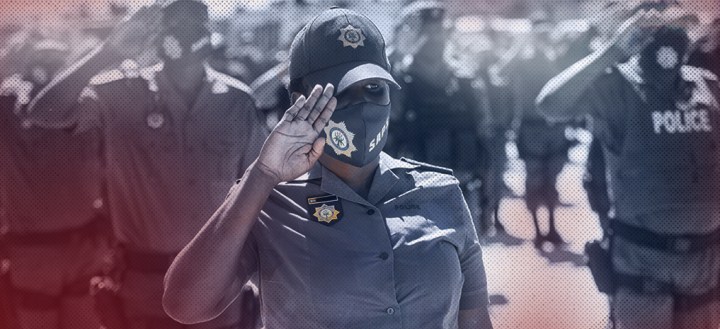Viewfinder: BRUTAL TRUTH
Dearth of discipline: The loopholes the SAPS uses to protect its own

This explodes any notion that the country’s police watchdog is able to exercise ‘independent’ police oversight in South Africa, an investigation reveals.
Read how SAPS protects the killers within its ranks here.
On 1 June 2014, a group of police officers in a rural Eastern Cape township were accused of beating a man so badly that they broke his ribs and ruptured his small intestine. Phindile Ramncwana, 52, died from his injuries a short while later. In spite of eyewitness statements describing the assault and evidence that some of the police officers were repeat offenders, police management did not fire any of the officers following a disciplinary hearing. All but one of them escaped sanction altogether.
A new investigation by Viewfinder reveals that SAPS’s failure to discipline these officers was the predictable consequence of South Africa’s broken police oversight mechanism.
That mechanism relies heavily on SAPS management’s enforcement of watchdog recommendations against officers accused of brutality. But loopholes in the laws and regulations governing police discipline allow senior police officers to protect, rather than discipline, their accused colleagues should they choose to do so.
According to officials from the Independent Police Investigative Directorate (IPID) interviewed for this investigation, those loopholes are used with impunity. A data analysis by Viewfinder of the disciplinary outcomes of such cases supports that conclusion.
- One loophole, for instance, allows officers accused of even the most serious violent crimes to remain on duty while these cases are outsourced to IPID for investigations which are often poor, lengthy and may fall by the wayside;
- Another allows police to assign disciplinary investigators to reinvestigate IPID cases from scratch and to come to conclusions which may exonerate their accused colleagues (and supersede findings of likely wrongdoing and a disciplinary recommendation by the “independent” watchdog);
- Another allows police departmental hearings to take place behind closed doors, without the presence of independent observers to ensure that these are fair. In these hearings, the accused officer, the SAPS’s representative (tasked with leading evidence against the accused) and the chairperson (who must decide on guilt or innocence and impose a sanction) are all police officers; and
- The outcomes of these hearings usually favour the accused officers. Often the officers are acquitted. And if they are convicted, another loophole allows low sanctions – such as suspended sentences or “warnings” which expire within months – to be meted out even in cases of violent alleged misconduct involving complaints of rape, murder and assault with intent to do grievous bodily harm.
Police management’s ultimate control over these departmental processes explodes any notion that the country’s police watchdog is able to exercise “independent” police oversight in South Africa. The consequence is that problem officers, like those accused of murdering Phindile Ramncwana, are routinely left unpunished to become a scourge in the communities that they are supposed to serve. DM/MC
 This investigation was funded by the Henry Nxumalo Fund for Investigative Reporting, Luminate, Millennium Trust and GroundUp. This article was edited by GroundUp.
This investigation was funded by the Henry Nxumalo Fund for Investigative Reporting, Luminate, Millennium Trust and GroundUp. This article was edited by GroundUp.
Header poster design by Alex Noble with photo by Brenton Geach for Gallo Images.

















 Become an Insider
Become an Insider
I agree whole heartedly with you. I testified against corruption at a departmental hearing. The accused insinuated that I actually didn’t work on that day. When I went for a printout of work records, the whole year’s record was wiped clean. Luckily I had signed on in the OB as well, got him guilty.